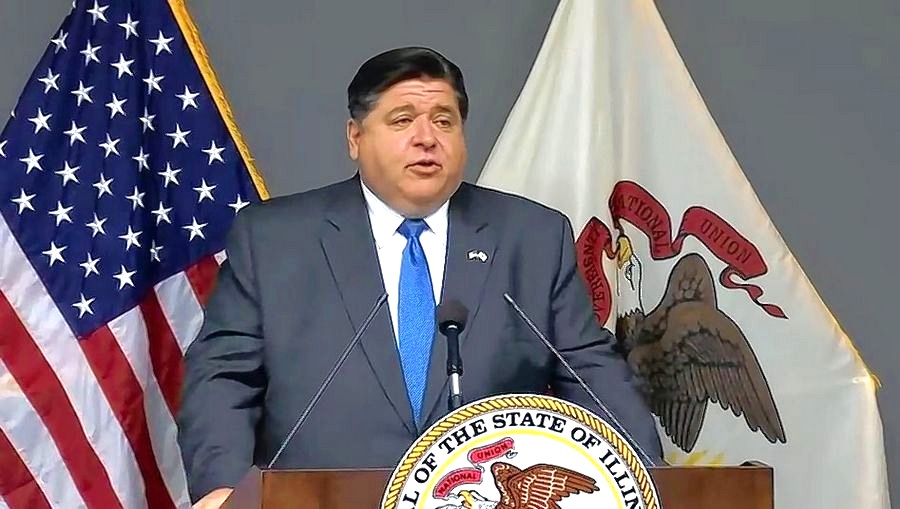Mayor Lori Lightfoot and the Chicago Department of Housing on Monday, May 24, opened the third round of rental assistance for tenants and landlords since the onset of the COVID-19 pandemic.
Tenants who are behind or are struggling to pay their rent during the pandemic can apply for the city’s Emergency Rental Assistance Program (ERAP). The program aims to address looming housing crisis concerns.
The program includes nearly $80 million funded through the Coronavirus Response and Relief Supplemental Appropriation Act, signed into law by Congress in December 2020 and will offer up to 15 months of rental assistance and utility payment assistance for impacted renters.
Applications are open now through 11:59 p.m. June 8, 2021, at [chicago.gov/renthelp].
In addition, a call center will provide support in multiple languages to help renters and landlords complete their applications. The call center number is 312-698-0202 and will be open from 9 a.m. to 7 p.m. Monday through Friday and 10 a.m. through 6 p.m. on Saturdays. It will be closed Sundays and on Memorial Day.
To be eligible for ERAP, tenants must:
- Live in Chicago
- Have suffered a hardship due to COVID-19, such as job loss, reduced hours, or illness within the household
- Be at risk of housing instability
- Have earned less than the maximum household income during 2020 or at the time of application (income limits can be found at [Chicago.gov-/renthelp])
Landlords can apply for assistance on behalf of a tenant. Landlords may also register their properties using the online application and be notified if a tenant has started the application process for rental assistance.
Household income limits apply, and proof of address, income self-certification, and other documentation are needed to qualify. Proof of citizenship is not a requirement for qualification. Funds will be distributed on a rolling basis.
Governor JB Pritzker recently signaled that he will lift the 14-month ban in phases with the eviction moratorium concluding in August. There is widespread concern that it will lead to a sudden burst of evictions.
“Over the course of this incredibly difficult year, our residents, especially our most vulnerable ones, have faced unimaginable loss that is compounded by systemic poverty and lack of access to safe, affordable housing,” said Mayor Lightfoot.
“The Emergency Rental Assistance Program will not only help to relieve these residents of the fear of losing their homes and being thrown further into uncertainty and socioeconomic instability but allow our city to make significant progress in our mission to provide our communities with resources they need to thrive long after this pandemic is over.”
Chicago’s ERAP, along with other county and state assistance programs, are designed to keep Chicago renters in their homes as well as avoid the kind of multifamily foreclosures that were seen in the wake of the 2008 economic crisis.
Since the onset of the COVID-19 pandemic, eviction moratoriums at the state and federal levels have provided some protection to tenants who have lost income.
During the pandemic, landlords have also struggled to pay their bills due to reduced rent collections. ERAP represents crucial assistance to Chicago renters to avoid a wave of evictions, and to Chicago property owners to avoid foreclosures and resulting housing instability.
“The Department of Housing is thrilled to be providing this much-needed assistance to renters vulnerable to eviction, and to landlords vulnerable to foreclosure,” said Department of Housing Commissioner Marisa Novara. “Between our portal and the many community-based organizations with deep ties in neighborhoods with whom we are partnering, it is our goal to ensure as many households remain stably housed as possible.”
“These funds will help so many Chicagoans that have fallen behind during a very difficult past year,” said Alderman Harry Osterman, Chair of the Committee on Housing and Real Estate.
“The city is dedicated to the recovery of every resident and wants to ensure everyone in need has the necessary support so no one has to lose their homes, since many have already lost so much during this pandemic.”
In March 2020, DOH opened its first rental assistance program funded with $2 million from its Affordable Housing Opportunity Fund providing 2,000 one-time grants in the amount of $1,000 to assist renters. The department received over 83,000 applications for this first round demonstrating the deep need across the city, a need that has only increased over the past year.
A second round, the Chicago Housing Assistance program, was launched with the Department of Family and Support Services (DFSS) supported by funds from the Coronavirus Aid, Relief and Economic Security (CARES) Act and Chicago’s philanthropic community.
Through this second round, DOH and DFSS provided over $33 million in assistance to over 10,000 households.
In addition to direct financial relief, DOH has funded pro-bono eviction counseling for low-and moderate-income Chicagoans and authored and passed several ordinances, including the COVID-19 Eviction Protection Ordinance and the Fair Notice Act, to protect renters.






